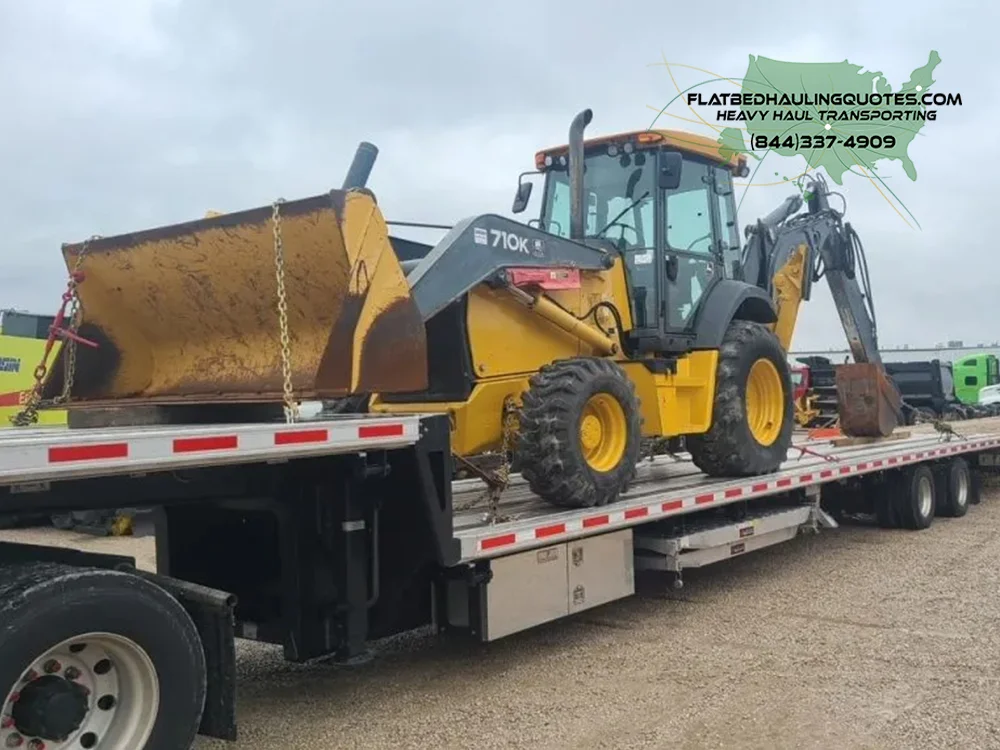The bustling economic landscape of Texas is no stranger to the movement of heavy equipment, a cornerstone of infrastructure development, construction, and various industries. From the expansive roadways of the Metroplex to the oil fields of West Texas, reliable heavy equipment hauling services are the unsung heroes, ensuring that colossal machinery reaches its destination unscathed. Transporting these oversized loads comes with a unique set of challenges, chief among them being safety, compliance with regulations, and the sheer logistical complexity of the task.

Navigating through the intricacies of Texas’s transport regulations, selecting the right hauling equipment, planning meticulous routes, securing loads effectively, and managing safety and risks are vital to successful hauls. In this guide, we’ll delve into each critical aspect, empowering construction companies, trucking businesses, and heavy equipment operators with the knowledge to oversee or execute heavy equipment transport that is both safe and efficient.
The Texas Regulatory Landscape for Heavy Equipment Hauling
Overview of State Regulations
The Lone Star State’s regulations for heavy equipment hauling are stringent, designed to protect public infrastructure and ensure road safety. Weight, size, and route restrictions vary based on the classification of the road and the locality, necessitating a deep understanding of Texas laws.
Essential Permits and Documentation
Before a single wheel turns, securing the correct permits is paramount. The Texas Department of Motor Vehicles issues several key permits, including single-trip permits, annual permits, and super-heavy or oversize permits, all contingent upon the weight and size of the load. The Texas Department of Transportation (TxDOT) must also grant approval for specific routes, especially when special conditions exist.
Compliance with Weight and Size Restrictions
Weight and dimensions play a significant role, defining the type of permit and the rig’s classification. The maximum gross weight for trucks is 80,000 pounds, and the allowable length and width are also prescribed. Adhering to these restrictions avoids hefty fines and possibly impeding traffic.
The roadways are the arteries of Texas’s economy, and their careful tending is crucial as they bear the burden of heavy equipment transport. Staying on top of the latest regulations, obtaining necessary documentation, and maintaining compliance with size and weight limitations are all in a day’s work for transport professionals.
Staying Ahead of the Game: Trucking In Texas Regulations
Staying informed and complying with Texas trucking regulations is essential. Regulations are frequently updated to ensure the safety of the public and the integrity of public roads.
Choosing the Right Hauling Equipment and Trailers
Different Types for Diverse Tasks
There is no one-size-fits-all in the world of heavy haul. From RGN (removable gooseneck) trailers to step decks and dual-lane transporters, each has its specialty suited to the dimensions and characteristics of the load.
Key Considerations When Choosing Equipment
Selecting the appropriate hauling equipment goes beyond the load’s weight and dimensions. Traction, braking distance, turning radius, and road conditions must all factor into the decision process to guarantee smooth transportation.
Flexibility in Equipment: Adapting to Different Needs
A versatile fleet of trailers and trucks ensures that a transport company can meet a range of customer needs. Invest in equipment that can be easily configured to handle various loads effectively.
Maximizing Load Efficiency and Capacity
Striking a balance between load efficiency and capacity is an art form, one that requires experience and an understanding of load dynamics to prevent shifting and damage during transit.
Understanding Route Planning Essentials
Conducting a thorough route survey is a non-negotiable preliminary step. This includes evaluating load categories, required permits, overhead obstacles, road conditions, and more to ensure a clear and safe path.
Adapting to Traffic and Weather Conditions
Heavy traffic and adverse weather can amplify the risks associated with heavy transport. Route planning should include measures to navigate these obstacles safely, potentially requiring adjustments in timing or alternate routes.
Leveraging Technology for Route Optimization
With GPS technology and route mapping tools, there’s no room for guesswork. These aids can help identify the most efficient and legally compliant path while accounting for real-time traffic updates.
The Human Element: Experienced Route Planners
Technology is a valuable ally, but experienced human route planners bring a level of intuition and problem-solving capability that can be the difference between success and complications.
Outsourcing to a seasoned heavy equipment hauler brings a wealth of benefits, including specialized knowledge, an extensive network, and a focus on exceptional service. The selection process should encompass several factors, including the company’s track record, customer testimonials, safety ratings, and the extent of insurance coverage. While cost is a significant consideration, it should not come at the expense of quality and safety. Reliable heavy haul service providers offer transparent pricing aligned with their level of service.
The transport of heavy equipment in Texas is more than just a movement; it’s a coordinated dance that merges professionalism, preparation, and precision. As you venture into the world of heavy hauling, may this guide serve as your compass, leading you through the intricate weave of compliance, logistics, and best practices. Whether you’re at the helm of a transport operation, a driver steering through the vast Texan landscape, or a business owner entrusting your assets into our capable hands, remember that safe and efficient transport of heavy equipment doesn’t just happen—it’s carefully orchestrated. Embrace the knowledge, embrace the journey, and let your transport echo the resilience and reliability that define the Lone Star State. Contact Heavy Haul Transporting for more information.
